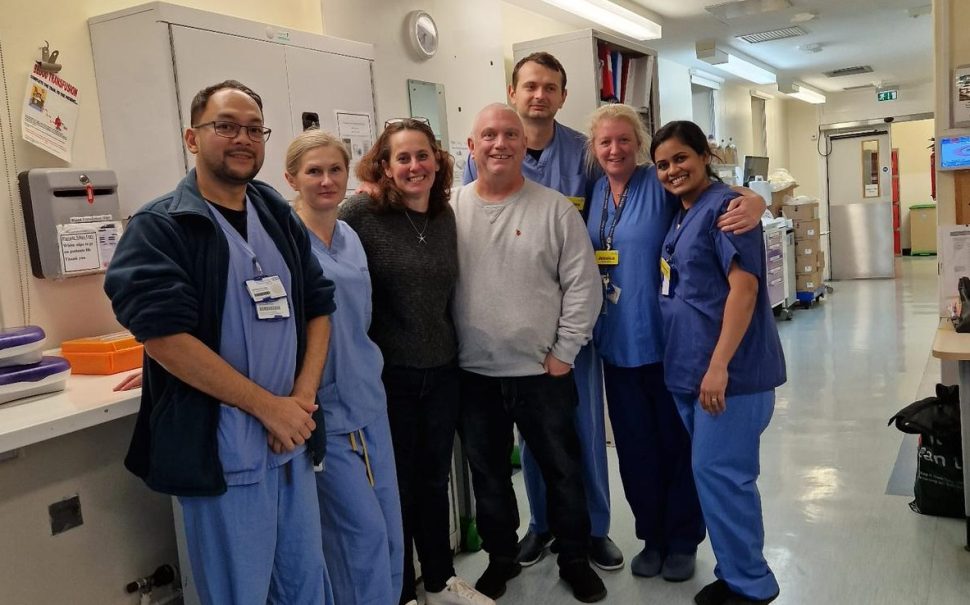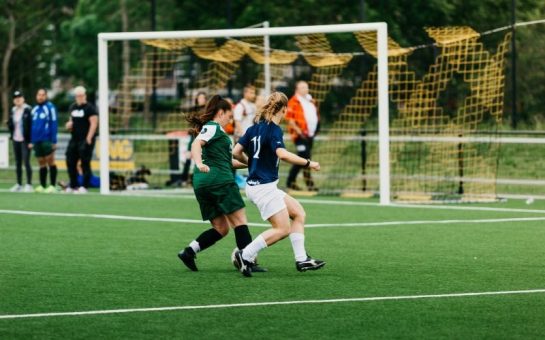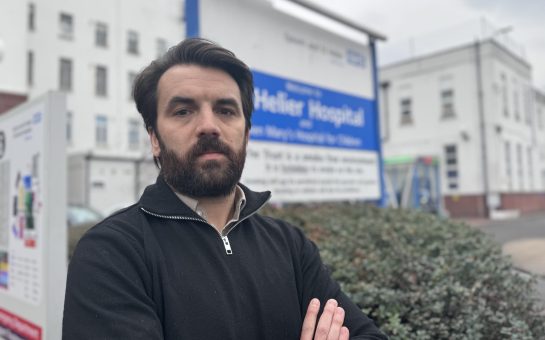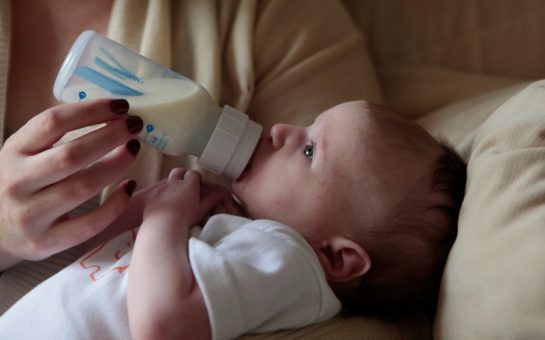A Morden mum who was paralysed by a very rare condition which meant she had to learn to walk and talk again is now recovering after starting treatment in February.
Nicky Hayward spent 90 days in St Helier’s intensive care unit after falling ill with Guillain-Barré syndrome, a serious condition that affects the nerves.
At her sickest, she needed assistance to breathe, was put under sedation, and was so unwell that her family thought they were going to lose her.
Nicky, 52, said: “It was quite scary, but I didn’t realise at the time just how ill I was, and I don’t think I did until I came out of hospital.”
Nicky first started to feel unwell in late February this year when she was out shopping and felt pins and needles in her feet.
She also recalls her duvet feeling damp with cold patches, and her legs collapsed under her the next day, when she was rushed to hospital.
Nicky continued: “When I first fell ill my daughter got me into the car and said: ‘Where do you want to go?’
“I said I wanted to go to St Helier, and that was probably the best decision of my life.
“It’s an amazing place, and the care is just great.
“A lot of people don’t recover fully from this condition, but I did. I think that’s down to my determination, but also the treatment I received.”
While Nicky was in intensive care, her husband Andrew, 54, completed a series of sponsored walks to raise money to help other patients and reached £1,200.
He said: “It was very difficult, she was lying in bed, and unable to do anything or move.
“One day she appeared to take a turn for the worse.
“Bells, whistles and alarms went off, and then I was then placed on the other side of the curtain.
“I could hear everything that was going on – it felt like we were going to lose her at that point.
“But they knew right away what it was and what to do.
“The staff there always had the time, no matter how busy they were.”
With some of the money, Nicky purchased a special machine that makes flavour into foam so people who can’t swallow can taste again, as well as a device that makes it easier to wash a patient’s hair while they are in bed.
She described the quality of the care she received, mentioning staff bringing her cake for her birthday once she was able to start eating, receiving foot rubs to ease her pain and the regular mental health checks and counsellor services provided.
Jessica Gregory, a Senior Sister in the Intensive Care Unit, said: “Nicky was so very poorly, and we had some challenging moments during her stay in intensive care.
“She is such a remarkable woman. Her outlook on life is truly inspirational, and we all feel honoured to have been part of her recovery.
“I think one of the reasons she got better was due to her amazing husband and children, they spurred her on every day.
“Andrew managed to find the time to fundraise as well and to buy the unit some amazing things that future patients will benefit from.
“We are very grateful.”
After leaving intensive care in May, she went to the Queen Elizabeth Foundation and the Wolfson Acute Neurorehabilitation Unit at St George’s Hospital for physiotherapy and other skills to increase independence.
Syreeta Lee, a physiotherapist who worked closely with Nicky, said: “Nicky always had a smile on her face despite experiencing some tough times.
“It was a pleasure to work with Nicky, and we wish her all the best in her continuing journey.”
Nine months on she is back home with her family and is well on the road to recovery.
She left hospital in July and has regained much of her mobility.
She said she hopes to be able to work again soon, join the running games at the Beavers group she leads, and get back on her paddleboard.
James Blythe, Managing Director at Epsom and St Helier University Hospitals NHS Trust, said: “It’s fantastic to hear that Nicky is doing so well.
“Her comments about the care she received are truly humbling and testament to the incredible teams we have working here.
“All of our teams work very hard in challenging circumstances, and as we come into winter we’re expecting to be very busy.
“We’d urge everyone to use NHS services wisely – such as going to NHS 111 online when it’s less urgent – to ensure care continues to be available for those most in need.”





